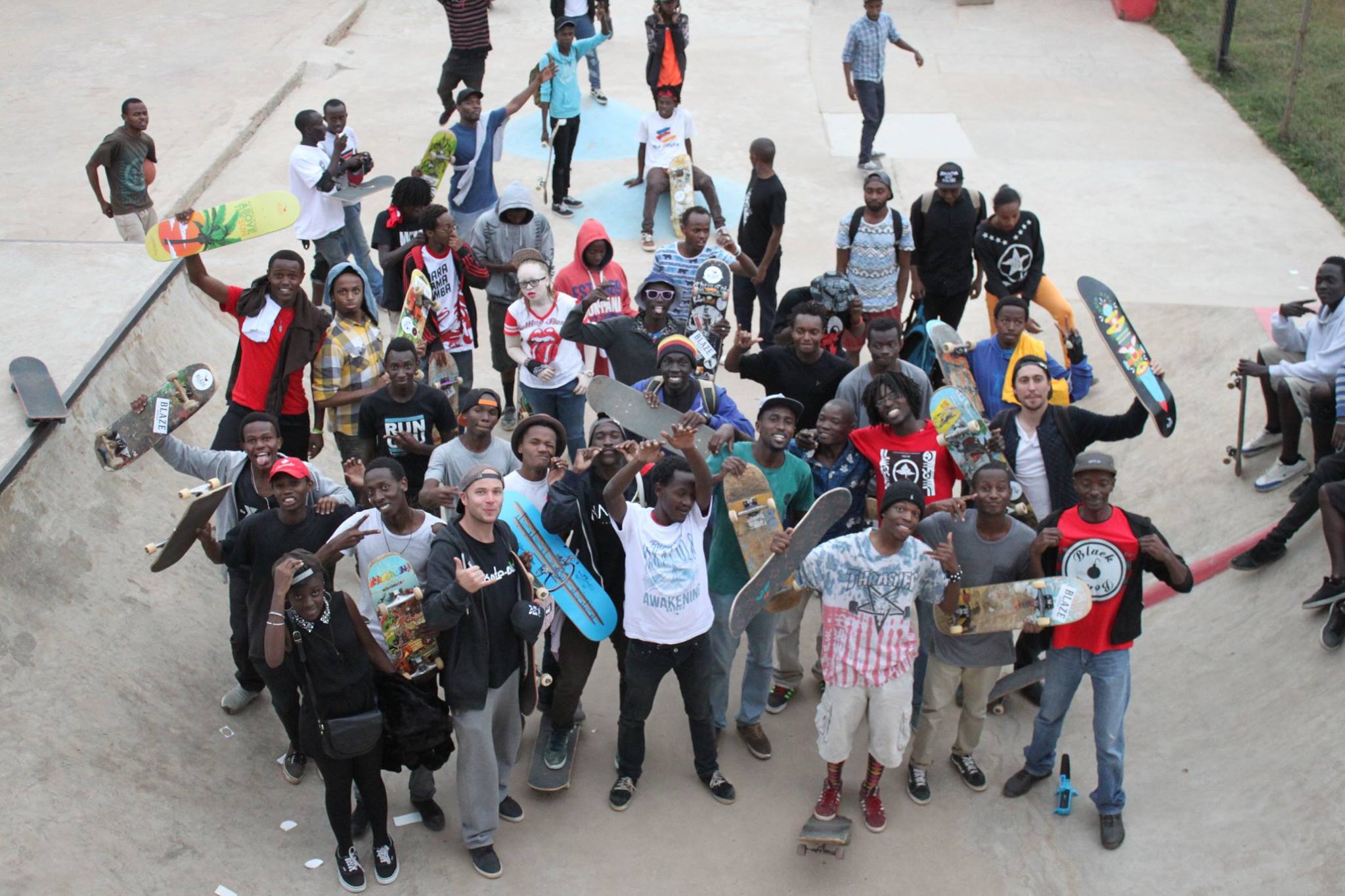Skateboarding is a sport, an art form, a lifestyle, and a culture which also creates friendships between people from different (social and cultural) backgrounds. With more than 100 million (estimated) active skaters, skateboarding is gradually becoming one of the most popular hobbies shared by people around the globe. Contrary to what most people and parents think, apart from funky clothes, shoes, attitude, and gravity-defying tricks, skateboarding does offer some amazing benefits for the mind and body. The best part about this sport is the convenience of practicing it anywhere; it can be performed indoors or outdoors, and in large spaces or small confined areas.
“Skateboarding brings the people together from different backgrounds and economic statuses.”
Skateboarding teaches important lessons & longterm skills (for life)
Skateboarding starts with more failures before eventually making managing riding down a street or even doing a basic trick. Then after giving the process of learning some acceptance and time, eventually improvements are made while realizing, that it’s not a shame to fail, it’s even a bigger mistake to not even try. I believe, that in the first place, skateboarding is teaching us longterm skills for life like responsibility together with “self-improvement” and problem-solving skills, which are important pillars for the foundation to be able to empower ourselves. Therefore, for most skateboarders, Skateboarding is much more than a sport, ist a source for inspiration, a tool for self-empowerment teaching us „lessons of life on a wooden toy”:
Skateboarding teaches Commitment: Similar to martial arts, skateboarding skills and fundamentals must be learned and mastered over time with practice and patience, (unlike the instant gratification provided by television and video games).
Skateboarding teaches Responsibility: Skateboarding provides a perfect opportunity for a young person to take calculated risks in a controlled environment, with very real and immediate consequences if maneuvers are not executed properly.
Skateboarding encourages Bravery: This is another amazing skateboarding benefit that not many sports offer. The biggest fear while skateboarding is losing control while doing a stunt. Hence every stunt requires countless hours of practice so that the skateboarder can perform even the most complex stunts with a clear and focused mind. This ability of not giving up, and having a calm and focused mind can prove extremely beneficial in real life (and emergency scenarios).
Skateboarding encourages Confidence: Through practicing tricks for many times and eventually making it after some time and dedication — you will feel there is nothing hard for you, and you can do & try anything (in life).
Skateboarding encourages Social Skills And Friends: Skateboarding is a social sport, indeed. It is very super fun for a bunch of people to do the same thing that all love. And you can get help and advice from other people about how to skateboard better. And you can learn how to communicate with others, and how to make friends with others. For introverted children, skateboarding is a great helpful social activity to help them go out and make friendships
Skateboarding helps with Stress Relief: Any physical activity is considered to be good for relieving stress. Skateboarding can help you take your mind off things. Alternatively, it can also help you think clearly about things. Skateboarding seems to bring things into perspective and allows you to feel as though you’re more in control of other aspects of your life.
Skateboarding encourages Overall Health: As with all forms of physical exercise, skateboarding can reduce or eliminate your risk for many health problems, such as high blood pressure, diabetes and obesity
Skateboarding improves Coordination and Balance: Skateboarding involves a lot of coordination between your eyes, legs, feet and arms. The more you skate, the better you’ll get at this. Precision and coordination are used throughout your life, whether you skate or not. When you improve these traits, you better your ability to do all sorts of different things from driving to climbing to multi-tasking.
Skateboarding teaches Determination: Bruises and bumps. Scrapes and scars. Aches and pains. They’re all a part of skateboarding. And since we love skateboarding so much, we’re willing to take the abuse. The fun and excitement of skating is far greater than the pain involved. Most small injuries go away. You forget about them. But you’ll never forget your first kickflip, your first drop-in, or your first handrail. So we roll with the punches. And those punches become easier to deal with each and every time. We fall. We get up. We try it again with even more determination.
Skateboarding encourages to get rid Of bad habits: Nowadays many people have such bad habits of staying indoors for a whole day, keep playing smartphones or video games, or more. However, when you pick up your skateboard, such things will not bother you anymore.
Skateboarding encourages Self-Empowerment & (Social) Skills Development
Because skateboarding can be practiced alone also as a group activity. By experiencing skateboarding together, we are able to build strong interpersonal relationships. Along the way in our journeys to different places and skateparks, we will meet like-minded individuals who share the same passion (and often also the same values) as us. More than a bond in just the training, we develop deep emotional connections with other practitioners that we call friends and homies. In spite of all the associated dangers, skateboarding sure does wonders for the body and mind in the long run. Skaters need to be focused and alert, particularly in a skatepark setting, to maintain their balance and to perform the maneuvers they do.
Atskateparks, older skaters tend to look after younger skaters. They offer tips, help them out when they fall, and will rise to the occasion when they have the opportunity to set a positive example or mentor a younger skater. A skatepark or skatespot is a place where skaters get together and enjoy the space, the camaraderie, and the physical thrill of riding. An outdoor, open, highly visible location–as most skateparks are–is not the place to bully kids, use drugs, or be a nuisance. Skaters are there for a reason, and are generally very good at policing each other about behavior that interferes with their enjoying the park. Skateparks, where the skaters have trouble with non-skating drug users and delinquents showing up, are typically located in secluded areas, where casual supervision is infrequent or doesn’t exist. It’s an unfortunate situation, but it’s one that the skaters suffer from, rather than create themselves. It is important that the skatepark is positioned somewhere in the community where there is ample pedestrian traffic. This prevents people from preying on the captive skatepark audience.
A well-built and properly sited skatespot or public park, that reflects the needs of the local youth and skaters is a hive of creative, physical activity, a place where kids and adults who enjoy skateboarding come together and are focused on their sport in an inherently positive environment.
Warum echter Fortschritt und Innovation Authentizität brauchen
In Organisationen, Teams und Projekten wird viel über Innovation, Zusammenarbeit und Wachstum gesprochen. Doch die Realität sieht oft anders aus:


